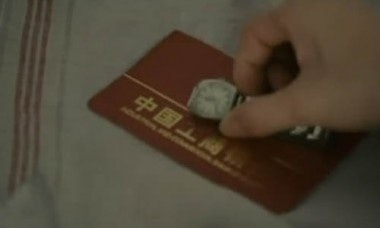Films Like Upcoming "Color Me Love," Recent "Go Lala Go!" Prominently Feature BMW, Lipton, Apple Products#

While product placement in Chinese television shows and films isn't entirely a new phenomenon, it is undoubtedly becoming more overt and moving beyond the occasional soda can and further up the value chain, particularly as project budgets (and the number of middle-class viewers) rise. However, along with the increasingly prominent role played by brands on the big screen in China has come no shortage of controversy among audiences. Earlier this year, the starring role played by brands like Lipton and Lenovo in "Go Lala Go!" (杜拉拉升职记), a"The Devil Wears Prada"-esque romantic comedy about an ambitious office worker, alienated much of its audience. As one reviewer wrote:
If I didn’t know better, I would assume that everyone working in a corporate office in China drank Lipton tea while talking on a Nokia phone and emailing on their Lenovo. As a result, Go Lala Go never really challenges or makes any notable statements, and it stands as a perfectly entertaining piece of fluff. This film is clearly designed to send young urban Chinese consumers into a shopping frenzy, as prominent product placement is to the point of overkill.
Others in China have been turned off by overt product placement in television programs such as the "Ugly Betty" adaptation "Ugly Wudi" (丑女无敌), which features products by Dove -- one of the show's main sponsors -- so prominently that the show has been described (triumphantly, by AdAge) as "one long product placement." Last year's television drama "Meteor Shower" (一起来看流星雨) too saw audiences turn away as a result of the non-stop barrage of brands. However, it appears that many of the missteps made in the nascent world of product placement in China provided a valuable lesson for marketers, as relative subtlety and a more high-end focus may be the new name of the game.
In September, Cadillac announced it would be one of the sponsors of the upcoming film "Birth of the Party" (建党伟业) about the founding of the Chinese Communist Party -- a move that raised more than a few eyebrows across the Pacific. While the sponsorship may be more about promoting its new long-wheelbase SLS than having a major role in the film, the move indicates the importance of subtle product placement among higher-end companies in China, particularly as the country's film industry continues to boom. Another upcoming film, "Color Me Love" (爱出色) -- yet another drama in the vein of "The Devil Wears Prada" -- will feature art placement in the form of works by contemporary artists Qi Zhilong and Yue Minjun alongside brands like Apple, Diesel, Cartier, Versace, Hermes and Prada.

As BrandChannel points out, the conspicuous positioning of high-end and high-tech brands in "Color Me Love" -- in contrast to the cosmetics, beverage, and mid-range auto brands featured in films like "Go Lala Go!" and "Ugly Wudi" -- indicates the growing potential that these more upscale brands have in China. Going a step further, BrandChannel suggests that the increasing ubiquity of product placement is simply a reaction to tightening restrictions on advertising in China, and as such are an increasingly attractive alternative to conventional ads for many brands. Chinese brands are also looking to get in on the act both at home and abroad -- this year, the mass-market retailer Metersbonwe paid an undisclosed amount for a one-second billboard cameo in "Transformers 2."
While product placement may be an increasingly viable form of advertising for brands, and a lucrative form of fundraising for producers, as with everything in China, restrictions (or a wider backlash) could come at any time.